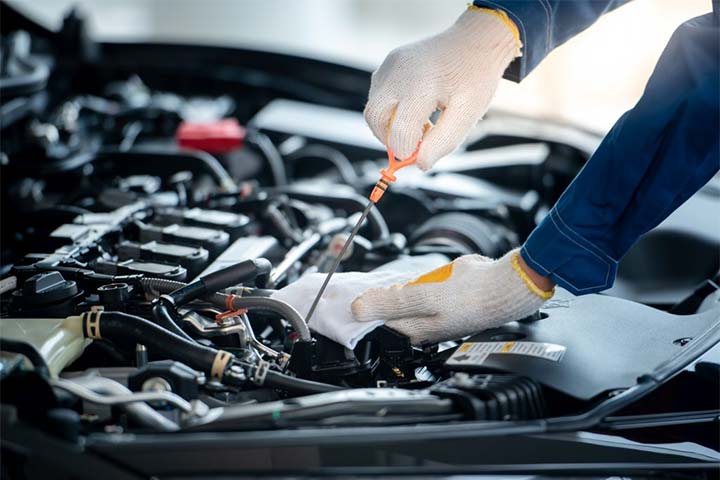BMW is renowned for its luxury, performance, and cutting-edge technology. However, like any high-performance vehicle, BMWs are not immune to mechanical issues. Over time, various components may experience wear and tear, leading to performance problems if not addressed. Regular BMW servicing plays a crucial role in preventing these issues, ensuring your vehicle operates smoothly and efficiently. Keeping up with BMW servicing not only extends the lifespan of your car but also helps avoid expensive repairs down the line.
In this guide, we will explore some of the most common BMW issues and how timely BMW servicing can prevent them, saving you both time and money.
Most Common BMW Issues and How to Prevent Them
Engine Overheating
One of the most frequent problems BMW owners face is engine overheating. This issue often stems from a faulty water pump, thermostat failure, or coolant leaks. Ignoring this problem can lead to severe engine damage and costly repairs.
Regular BMW servicing ensures that the cooling system is inspected for leaks, and components like the water pump and thermostat are checked for wear. Replacing these parts before they fail can prevent overheating, preserving your engine’s performance and longevity. Additionally, flushing and replacing the coolant at recommended intervals is a key part of BMW servicing that prevents engine overheating.
Oil Leaks
Oil leaks are a common concern in BMWs, particularly in older models. They often result from worn-out valve cover gaskets or oil filter housing gaskets. If left unchecked, oil leaks can lead to low oil levels, increasing engine wear and reducing efficiency.
With routine BMW servicing, potential leaks can be identified and addressed before they cause significant damage. During servicing, mechanics inspect gaskets and seals for signs of wear, replacing them as needed. Regular oil changes using high-quality engine oil also help maintain optimal engine performance and reduce the risk of leaks.
Electrical System Malfunctions
BMWs come with advanced electrical systems, including complex infotainment setups, sensors, and battery management systems. However, these systems can sometimes develop faults, leading to battery drainage, iDrive malfunctions, or sensor failures.
Professional BMW servicing includes comprehensive diagnostics to check the electrical components, ensuring everything functions correctly. Battery health checks and software updates performed during servicing help prevent unexpected failures, keeping your BMW’s electrical system running smoothly.
Suspension Problems
BMW’s sophisticated suspension system delivers superior ride quality, but over time, parts such as control arms, bushings, and shock absorbers may wear out. This can result in uneven tire wear, poor handling, and an uncomfortable ride.
Routine BMW servicing helps detect and address suspension issues before they become severe. Mechanics inspect the suspension components for signs of wear and replace them if necessary. Proper suspension maintenance ensures better road grip, improved comfort, and overall vehicle stability.
High-Pressure Fuel Pump (HPFP) Failure
Many BMW models, particularly those with turbocharged engines, are prone to high-pressure fuel pump (HPFP) failures. Symptoms include engine misfires, loss of power, and difficulty starting the vehicle.
Regular BMW servicing helps in early detection of fuel system issues. Using high-quality fuel and following the recommended service schedule can prolong the life of the HPFP. Technicians can test the fuel pressure and replace failing components before they result in complete breakdowns.
Timing Chain Wear
The timing chain is a crucial component that ensures the synchronization of the engine’s internal parts. Unfortunately, some BMW models suffer from premature timing chain wear, leading to engine rattling noises and potential engine failure.
Proper BMW servicing includes monitoring the timing chain’s condition and ensuring that the engine is well-lubricated with high-quality oil. Regular oil changes help reduce wear on the timing chain, preventing expensive repairs. Early detection and replacement of a worn timing chain can save BMW owners from catastrophic engine damage.
Transmission Issues
BMW’s automatic transmissions are designed for smooth gear changes, but transmission issues such as delayed shifting, rough gear engagement, or fluid leaks can occur. These problems are often due to fluid degradation, solenoid failures, or mechanical wear.
Through consistent BMW servicing, transmission problems can be prevented. Regular transmission fluid changes, as recommended by BMW, help maintain smooth gear transitions. Servicing also allows technicians to inspect for potential transmission wear, ensuring the longevity of the drivetrain.
Brake System Wear
The braking system is essential for safety, and BMWs are known for their precise braking performance. However, brake pads, rotors, and ABS sensors can wear out over time, leading to reduced stopping power and safety risks.
Routine BMW servicing ensures that the braking system is inspected and maintained. Worn brake pads and rotors can be replaced before they compromise safety. Additionally, ABS sensors are checked to ensure the system operates correctly, providing optimal braking performance.
How Regular Servicing Prevents These Issues
Regular BMW servicing is the key to preventing common BMW problems. Scheduled maintenance helps detect and fix potential issues before they escalate into costly repairs. Here’s how BMW servicing benefits your vehicle:
- Early Detection: Trained mechanics perform diagnostic checks, identifying minor faults before they turn into major problems.
- Longevity: Proper maintenance extends the lifespan of essential components, reducing the risk of unexpected breakdowns.
- Cost Savings: Preventative maintenance is far more affordable than major repairs caused by neglect.
- Optimized Performance: Well-maintained BMWs offer better fuel efficiency, smoother rides, and enhanced driving experience.
- Safety: Ensuring that brakes, suspension, and electrical systems function correctly enhances road safety.
Choosing a certified BMW servicing provider ensures that genuine parts and specialized diagnostic tools are used, keeping your vehicle in peak condition. BMW’s recommended service schedule should be followed to prevent avoidable issues and maintain optimal performance.
Takeaway
Owning a BMW comes with the responsibility of maintaining it through regular BMW servicing. From engine overheating and oil leaks to transmission issues and brake wear, many common problems can be prevented with timely servicing. Staying proactive with maintenance not only enhances performance but also saves you from expensive repairs in the long run.
To keep your BMW in top shape, book a professional BMW servicing appointment today. Whether it’s a routine check-up or a detailed diagnostic, ensuring your car receives expert care will keep you driving smoothly and confidently. By staying on top of BMW servicing, you can enjoy the luxury, power, and reliability that BMWs are known for, without the stress of unexpected breakdowns.











